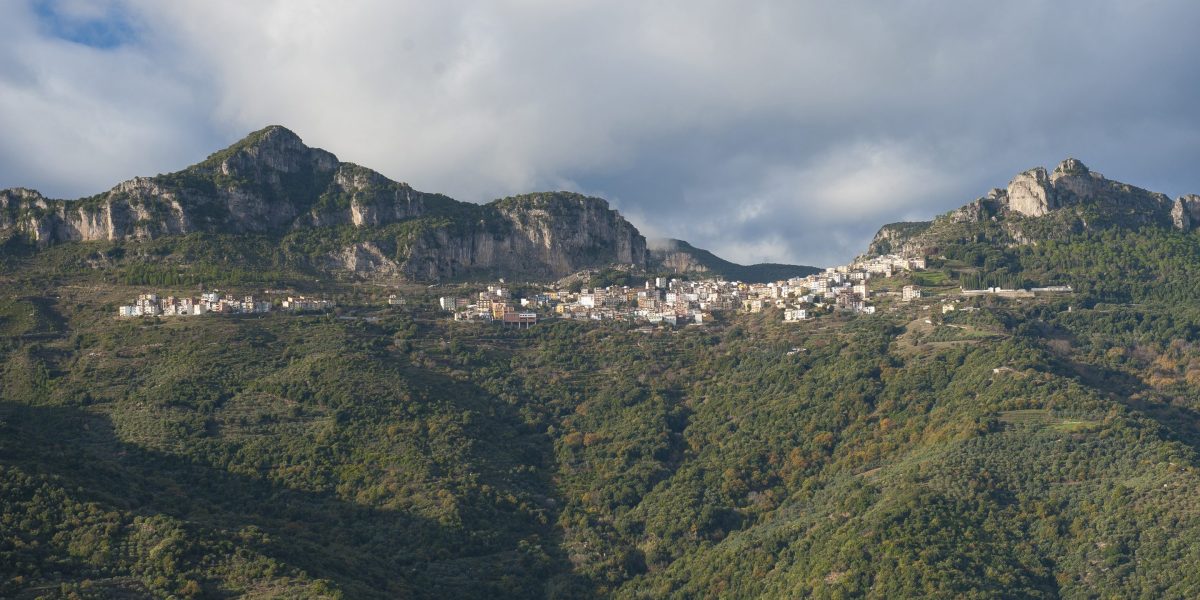This Italian island will pay your rent if you relocate to a tiny mountainous village
4 min read
Nestled among the mountains in the heart of Sardinia is a village named Ollolai—but it could soon be called home to visitors willing to share their stories with the area.
The village on the Italian island hit headlines in 2018 when it began selling some of its unloved homes for a single euro.
Now the town has launched a new scheme aimed at attracting digital nomads to come and live rent-free.
The Work From Ollolai (WFO) project’s goal is to showcase the opportunities available to students (and non-students, should they wish) in emerging digital professions, and illustrate the change in the world of work since a shift to hybrid and remote roles during the pandemic.
This “cultural interchange” comes at a symbolic cost of a €1 ($1.07) payment per month and some time donated to teaching Ollolain locals about the new global work environment.
The scheme was dreamt up by Mayor Francesco Columbu and his brother Luca. The brothers grew up in the village before Luca moved to New York 15 years ago, returning to work in his hometown during the summers and over the Christmas periods.
Aa a director of a software development company now living between New York and Miami, Luca’s ability to work from the mountainous village provided the inspiration to attract more talent to the area.
In an interview with Fortune, Columbu said the aim had been to create a “bridge” between the rural location and talent who didn’t even know working from Ollolai was an option.
The current guest in Ollolai is a UX designer, Columbo said, who will be giving a presentation on her work—a job many people in the village wouldn’t even know existed.
“It’s a very practical presentation, aimed at people from around the middle-school age up to university, who might not even know what a UX designer is, it’s not the sort of skills you learn in school,” Columbo said.
And the motivation for temporarily relocating to the village—if you can—is clear: “The nature is beautiful, the food is great, the people are lovely, the cost of living is a lot cheaper, but with a remote place there needs to be a bridge to support bringing people in.”
Life in Ollolai
A guest’s contribution in return for a rent-free stay can be in the form of a presentation, lectures, or lessons about the visiting individual’s background and experiences.
Although hybrid, remote, or digital-nomad professionals from a host of backgrounds are invited to apply for the scheme, the team at the project also have some particular industries they’d like to hear from: Technology, media, finance, real estate, and architecture are “strongly encouraged” to apply.
The project adds it is also keen to hear from “professional artists, writers, musicians, scientists, and academics in general.”
The first phase of the scheme—funded by a $20,000 grant from the local town council—looked to attract 10 American tourists largely because Franco Columbu—the shepherd turned boxer who found fame after he moved to the U.S. and won Mr. Universe in 1970—was born in the village.
However, interest in the project has ballooned, Columbu said, with more than 2,500 people subtitling their applications for the scheme.
The project is now running into next year, he confirmed, with individuals already lined up from around the world.
“A challenge for rural areas is to fill the gap between the evolving world—which they’re part of—and the opportunities like jobs they’re missing; not many people work remotely in Ollolei,” said Columbo.
“For a lot of rural communities it’s a chicken and an egg situation. For us it’s do you teach English, as there’s a language barrier, or try and find the opportunities,” he said. “I guess you could say we chose to crack the egg and experiment to see what we could achieve.”
Although living on a Mediterranean island may feel like the holiday of a lifetime for some, the offer doesn’t come with a full-board option.
Participants in the scheme are expected to cover their own food, drink, utility (estimated to be around €100, or$106, a month) and travel expenses—as well as the hire of a car which is recommended for the remote location.
And you won’t find your potential temporary home on Airbnb either, as all the guests will be housed in private homes of one- or two-bedroom apartments.
“We will do our best to provide as comfortable accommodations and amenities as we can,” the project states, adding: “It’s also expected the guests treat and respect the houses we provide as if they are their own.”
Although Ollolei is home to some small shops, bars, and restaurants, living in the mountainous Barbagia region does present some transportation challenges: It’s a two-hour drive from the capital of Cagliari while the closest airports are also a few hours by car.
“During your stay, you’ll have the opportunity to immerse yourself in the lifestyle and culture of the blue zone, one of the five areas on the planet with a high concentration of individuals living beyond 100 years old,” the team writes. “You’ll also experience close proximity to untouched nature, savor delectable cuisine, and explore the incredible nearby beaches.”


